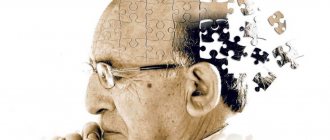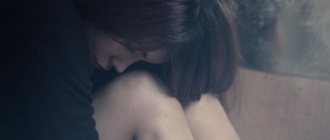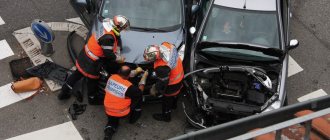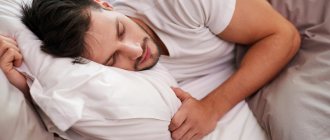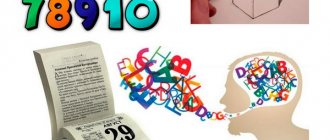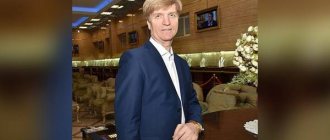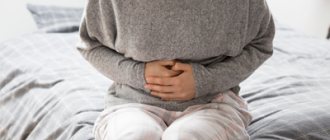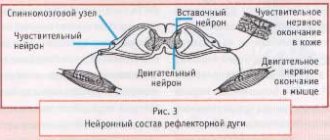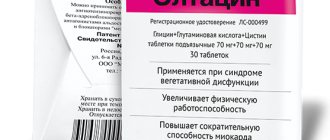Causes of Memory Loss
Why doesn't an elderly person recognize close relatives? Most often this is due to pathological changes occurring in the central nervous system.
- Prosopagnosia is a dysfunction of the parts of the brain responsible for recognizing the faces of familiar people. At first, a person does not distinguish facial features; later, he does not understand at all whether the person in front of him is a man or a woman. Rarely, in advanced cases, an elderly person cannot distinguish between animals, birds, etc. Pathology can be suspected when a person looks at photographs and cannot say who is depicted in them. It is from this moment that you should think about it and take appropriate measures.
- Alzheimer's disease is another disease that accompanies old age. An elderly person does not recognize loved ones, and attention and memory suffer. There is one interesting feature - events that happened a long time ago are remembered well, but what happened recently, even an hour ago, is difficult to remember. A person can perform the same actions and ask questions several times. Later, a violation of orientation in space occurs. It is expressed in pathological forgetfulness of the place of residence; a person does not remember his relatives, where he put an object, etc.
Often, when an elderly person does not recognize close relatives, it is argued that this is due to age. In fact, this may be the manifestation of one of the diseases of the nervous system. You should not hope for improvement or let the situation take its course. You can slow down the manifestation of the pathological process if you contact a specialist - a psychiatrist.
Stroke, memory restoration - what does the process depend on and to what extent is recovery possible?
In post-stroke patients, partial, and in particularly difficult cases, complete memory loss is noted. This, along with loss of ability to concentrate, is one of the most common complications resulting from cerebrovascular accident. For preserving various experiences - social, professional, everyday, etc. different areas of the brain respond. The extent, number and location of lesions determine which part of the memory mechanism is erased and the extent of memory impairment. A post-stroke patient may lose self-care skills, but retain his professional knowledge in detail, and vice versa.
It is believed that the processes of short-term and operative memory, which record what is happening at the current moment, are much more difficult to restore than long-term memory, which stores situations and skills that were often repeated in the patient’s past. This is explained not only by the strength of the connections formed, but also by the fact that a large number of neurons and brain areas were involved in these connections (as information accumulated), therefore the destruction of some of these connections does not lead to a complete loss of information about the past. The only exceptions are cases of extensive stroke with multiple lesions, when most of the connections were destroyed.
It should be noted that amnesia can happen suddenly - during an impact, or it can stretch out over time and appear much later (due to the destruction of individual areas as a result of secondary complications). Therefore, the work of the interdisciplinary team (neurologist, therapist, physiotherapist, rehabilitation specialist) of the neurological center, where the patient is going to undergo rehabilitation after a stroke, will be aimed at preventing complications at the initial stage. The period of memory recovery after a stroke can also take a long time.
How do older people with memory loss live?
Progressive memory decline negatively affects the social life of an elderly person. It becomes difficult for him to take care of himself. Basic skills are forgotten, speech and self-care deteriorate, and at the same time the quality of life.
Relatives require close care and additional attention, which, as a rule, is not always enough. What's left to do? Seek help from a boarding house for the elderly . There is 24-hour monitoring and high-quality medical care.
Stroke, methods of memory restoration (memory mechanisms)
For severe memory impairment and dementia, in accordance with international standards, medications are prescribed - AChE inhibitors (acetylcholinesterase) and nmda receptor blockers. Along with selected drug therapy in the rehabilitation of a patient who has suffered a stroke, cognitive training plays an important role, during which the patient performs tasks and exercises aimed at developing the memorization process. During such training under the guidance of a neuropsychologist, the patient re-learns to implement lost functions, relying on the intact parts of the memory mechanism and compensating for the damaged ones.
During the rehabilitation process, it is extremely important to involve the patient’s relatives as his support, since often, no matter how successful the recovery is, some of the lost functions can be realized only by relying on the external environment. Informing and training relatives on how to help a patient cope with the consequences of a stroke is one of the important factors in effective rehabilitation.
Lots of problems
So, for the first stage of rehabilitation, I chose home conditions. After all, at home, as you know, even the walls help.
Let me note right away that it is very important for relatives of stroke patients to learn to make decisions for their patients. And this is not so easy anymore. Especially when you have to take care of your parents. The attitude of seniority in such situations must be broken without timidity or embarrassment. Now it’s not my mother, but I, who is responsible for everything that happens to her and to me.
With a list of medications needed for my mother, received from her attending physician in the hospital, a speech therapy manual for restoring speech function and a list of physical exercises, and with the support of a visiting doctor and paramedic from the district clinic (this service appeared on October 1), I was sure that my mother and I 100 percent armed against the consequences of a stroke.
However, the visiting doctor said that he would visit us once every three months, and the paramedic - once every one and a half months. The neurologist will be able to come only in two weeks. Neither a speech therapist nor a physical therapy specialist will make house visits.
Article on the topic
Live in a new way. How does a psychologist help patients who have had a stroke?
Diagnosis of stroke
A stroke and its type are diagnosed by a neurologist. Sometimes additional consultation with a neurosurgeon is required.
To get the full nature of the pathology, doctors prescribe the following studies:
- radiation diagnostic methods (computed tomography);
- Magnetic resonance imaging;
- Ultrasound research methods.
Additionally, the specialist gives a referral for urine tests, an ECG, a lipid profile and a blood test.
A course towards positivity
We also try to give physical exercises the form of a game. Helping her do exercises or massaging her back, I invite her to sing with me, repeat nursery rhymes, counting rhymes, and tongue twisters after me.
And the other day we started washing a crystal chandelier: my mother is able to wash its parts with her left hand. Our immediate plans are to knead the dough and bake pies. But we would not have come to this if we had not had all the preparatory classes. Now my mother’s left hand has taken over the function of her right hand and is already coping with it successfully!
Article on the topic
Life after a stroke. How should rehabilitation proceed?
And of course, it is very important that a person recovering his health has the opportunity to communicate with his friends - by phone and in person. Even if my mother’s friends call and come at a time that is not most convenient for us, we are always happy to see them. I get a chance to take a break, and for mom it’s a joy!
And in general, more joy, smiles, a kind and positive atmosphere in the house where a person who has suffered a stroke is recovering! This is the most important rule!
The promised one has been waiting for three years
Of course, it would be better to send a person who has suffered a stroke to a rehabilitation center, where he would receive all the help necessary to restore his health. I also came to this conclusion when, after transporting my mother from the hospital home on the very first night, I had to call an ambulance. As a result, my mother again ended up in the hospital, where she was kept for about two weeks, during which I, having raised everyone I knew, received several tips on rehabilitation centers.
According to official documents, stroke patients can recover at a government rehabilitation center for free, but I was told it could take at least two months to wait for a place to become available.
Question answer
At what age is the risk of stroke greatest?
Other centers are paid. In some, a day of stay costs 12 thousand rubles or more (depending on the patient’s condition and his needs). In one of those where I applied, they calculated that I would have to pay 16,500 rubles per day.
There are centers that are much cheaper - with a starting price of 3 thousand rubles for being there, and other services for a fee. This option seemed acceptable to me, and I arranged a meeting with the manager. However, after a conversation with her, during which I was asked the questions “Who will take care of your mother?” and “We only have classes once a day, but we need two. Who will do the extra work?”, I realized that, even having paid for rehabilitation, I would be forced to do everything myself that I did during my mother’s illness: change diapers, wipe off bedsores, do physical exercises with her, as well as with my own efforts trying to restore her ability to speak and live the way she lived before.
Physical inactivity and stress. A doctor explains why strokes have become 10 years younger Read more
Recommendations after a stroke
A healthy lifestyle is the best medicine after suffering a recurrent stroke. Neurologists at the Yusupov Hospital also agree with this, therefore, upon discharge to their patients, they give a number of recommendations:
- reduce the amount of easily digestible carbohydrates and animal fats;
- give up salty, smoked and spicy foods, sweets, liver, eggs, caviar, alcohol and smoking;
- do not engage in heavy physical labor, refuse night shifts;
- listening to your well-being, do light exercise, often walk in the fresh air;
- sleep at least 8 hours;
- during the rehabilitation period every day, and later - 3 times a week, measure blood pressure;
- avoid stressful situations.
Stroke, like any other disease, is better to prevent than to fight it, so if you have health problems, you should consult a doctor in a timely manner. The Yusupov Hospital employs qualified doctors in various branches of medicine, so each patient will be able to assess their health and receive an effective treatment regimen. Make an appointment with a neurologist or other specialist by phone.
Expert commentary
Neurologist, Doctor of Medical Sciences, Professor Evgeniy Shirokov:
— In recent years, our medicine has shown good results in the treatment of patients suffering from stroke. But this only applies to the hospital period of treatment. Vascular centers have good diagnostic equipment, qualified doctors and modern medicines. Patients die less often and are discharged with better results. But then... Then everything depends on the family. Recovering a patient after a stroke is a colossal and labor-intensive task, the solution of which requires months and years. This is skilled work, scheduled by the hour, requiring an integrated approach (therapeutic gymnastics, massage, classes with a psychologist, speech therapist, physiotherapy). It is impossible to fully do this at home. Hence the results: in our country, about 40% of patients die a year after a stroke, and about 15% return to normal life. There are few free rehabilitation treatment centers, but they do exist. They employ knowledgeable people. You need to use it, even if you have to wait. Even under these conditions, you can undergo a course of rehabilitation treatment 1–2 times a year. This significantly improves the lives of patients and at least slightly reduces the burden on relatives.
Role reversal
But give up and say, “I did everything I could!” I had no right. And then I thought that my mother and I would play “Daughters and Mothers.” So our house was filled with all kinds of lotto, dominoes, puzzles, copybooks, coloring books intended for the youngest children, as well as letters and numbers, colored pencils, felt-tip pens, watercolors and plasticine. Some I bought at the store, some I got from friends and relatives.
It is unlikely that your parents will be offended that you treat them like children. At this moment, they really feel like children and are glad when they do something interesting with them. At least I see that mom is waiting for our classes. She likes some things more, she is more successful in some things, and some things are difficult for her.
But a variety of creative activities yield good results. Mom makes mistakes in naming colors and shapes less often, she has begun to correctly do what I ask her to do more often, she recognizes letters and already counts to eight on her own.
Brain catastrophe. What leads to a stroke? More details
